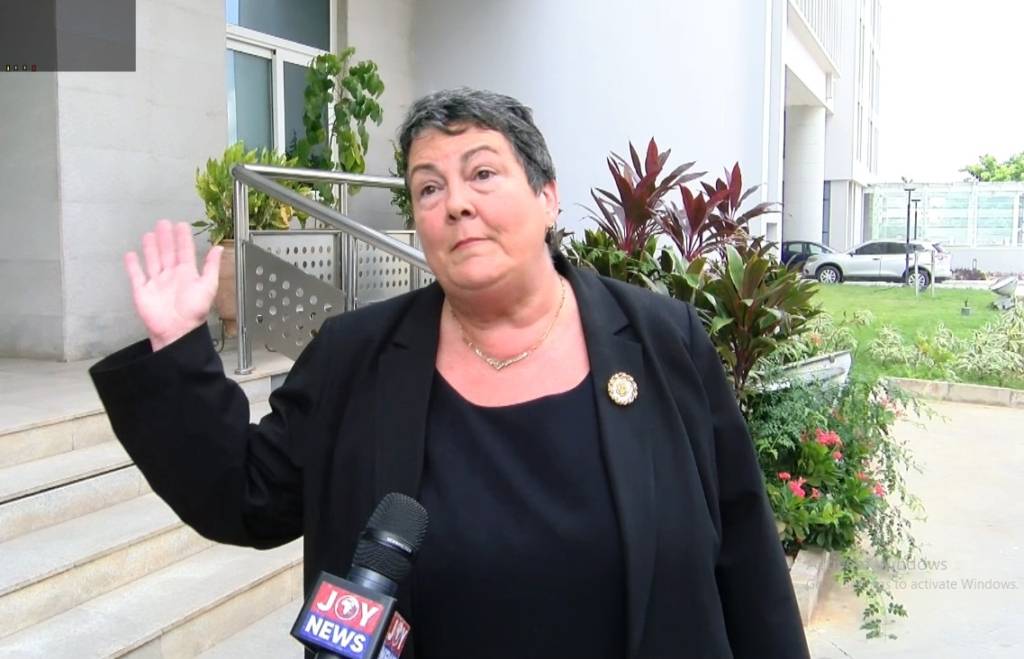President John Mahama has taken a strong stance on the controversial 10
percent tariff imposed on Ghana’s cocoa exports by the administration of former
United States President Donald Trump. According to Deputy Trade Minister
Sampson Ahi, the President has given full instructions for government officials
to take all necessary steps—both diplomatically and strategically—to resolve
the issue and protect Ghana’s key export sector.
Speaking on Joy News’ PM Express, the Deputy Minister stated that President
Mahama views the matter as critical to Ghana’s national interest. He explained
that the President had given his blessing for every level of intervention
required, including engaging with international stakeholders at the highest
level if needed.
The Trump-era decision to include cocoa in a list of products subject to a
10 percent tariff shocked many in Ghana, especially given that the United
States does not produce cocoa locally. Deputy Minister Ahi stressed the
unfairness of the move, questioning its logic and motivation. According to him,
the tariff does not make economic sense since there is no domestic cocoa industry
in the U.S. to protect.
During a high-level meeting between Ghanaian officials and the U.S.
Ambassador to Ghana, Virginia Palmer, the issue was thoroughly discussed. Ahi
revealed that Ambassador Palmer herself expressed surprise at the inclusion of
cocoa on the tariff list. She reportedly suggested that Ghana escalate the
matter through proper diplomatic channels, noting that cocoa might be exempted
if the right steps are taken.
The Deputy Minister noted that the President’s involvement might be needed
to give Ghana’s argument more weight on the global stage. He also indicated
that the government is ready to go the distance to challenge what many
Ghanaians see as an unjust policy affecting not just the nation’s economy but
also its farmers and the agricultural industry at large.
Cocoa is one of Ghana’s top export commodities and a major contributor to
the country’s GDP. Any disruption in the trade of this crop, especially with
key partners like the United States, could have long-term economic consequences.
Ghana relies heavily on its cocoa industry for foreign exchange and rural
employment, which makes the newly imposed tariffs particularly damaging.
Deputy Minister Ahi stated that the government is not alone in pushing back
against these tariffs. He mentioned that the African Union and the African
Continental Free Trade Area are both preparing coordinated responses. According
to him, a meeting of African trade ministers is scheduled for April 14 to
address the issue as a continental concern.
He emphasized the importance of a united African front in addressing unfair
trade practices, noting that many African nations could be affected by similar
actions if they go unchallenged. He added that this is not a time for silence
or inaction, as the decision impacts the entire agricultural value chain in
Ghana and could set a dangerous precedent if not addressed promptly.
The Deputy Minister’s statement highlighted the seriousness with which the
Ghanaian government is treating the matter. He reiterated that this was not
just about international politics but about the livelihoods of thousands of
farmers and the future of Ghana’s economic stability. He stressed that Ghana
would not be backing down and was determined to push for the reversal of the
tariff.
He said that beyond the loss of export revenue, the psychological effect on
farmers who rely on cocoa as their only source of income cannot be ignored. He
called for fairness and mutual respect in trade relations between nations,
urging the U.S. to reconsider the decision based on the long-standing
partnership both countries share.
As Ghana waits for the outcome of upcoming diplomatic discussions and the
collective response from African trade ministers, all eyes remain on how the
United States will respond. President Mahama’s firm direction, combined with
diplomatic pressure and regional unity, could be the beginning of a resolution
to what many see as a trade injustice.




No comments yet
Be the first to share your thoughts!